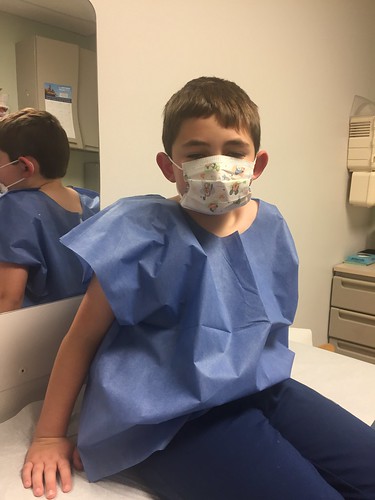Long-term respiratory illness is here to stay
Flus #Flus

Have you felt like that winter cold just doesn’t end? Well, you’re not alone. Many who contracted Covid-19 have suffered from long Covid, when the symptoms endure an extended period and can have long-term effects. Now, scientists have found that the common cold and flu can also have “long” versions, which include symptoms becoming chronic. In addition, we are in the midst of a “tripledemic” with Covid-19, the flu and RSV all making the rounds. Experts posit that longer-term illness is here to stay and more people are likely to be affected in the future.
What defines a long illness?
A long illness has symptoms lasting well over what is considered to be the average time for the disease. For most respiratory ailments, the threshold is three months of symptoms. Some have wrongfully thought they were suffering from a long cold or long flu because of the disremembering that happened during the pandemic. “Following the pandemic — when many common viruses weren’t circulating widely — some people simply forgot how long symptoms can linger after a standard respiratory illness,” usually a period of about two weeks, NBC News reported.
More severe initial infections are more likely to lead to a long infection, especially when it comes to the flu, according to a study published in The Lancet Infectious Diseases. “Conceptualizing these diseases as acute illnesses is really just looking at the tip of the iceberg and eclipses the much higher toll of adverse health outcomes that are happening in the post-acute phase,” Dr. Ziyad Al-Aly, who led the research, told The Guardian. Yahoo Life explained that long colds and flus can cause symptoms that include “a lingering cough, trouble sleeping, memory issues and trouble with taste and smell,” even after a person tests negative for the disease.
For some, symptoms can last well past the three-month mark, and these protracted effects are essentially untreatable. “It’s really treating symptoms at this point,” Dr. Thomas Russo, chief of infectious disease at the University at Buffalo, told Yahoo Life. “We’re still sorting out what’s causing it — that makes treatment difficult.” Sometimes long illnesses can produce a secondary illness, like bronchitis or pneumonia. Russo explained, “The telltale signs of a bacterial infection on top of influenza, Covid or a cold is often that a person might start to feel better and suddenly develop a fever, increased shortness of breath and chest pain.”
Why is long respiratory illness becoming more prevalent?
While experts have not definitively pinpointed a cause, there are a number of theories as to why we are seeing more cases of long respiratory illness. One of the theories, according to NBC News, is that many people are “more susceptible to respiratory illnesses this winter because they haven’t had a recent infection or vaccination,” or that some “may have gotten back-to-back infections that they confused with lingering symptoms.” There has been a lack of exposure to respiratory diseases over the past three years because of masking and social-distancing protocols. As such, people are feeling the force of their illnesses more acutely than before, a phenomenon known as “immunity debt.” People have also been receiving less vaccinations less against the flu, Covid and RSV.
“We learned from Covid-19 that infections that are initially thought to cause only acute illnesses can cause chronic disease,” Al-Aly told Time. According to the Lancet study, there are 94 health risks associated with Covid and the flu, any of which can develop after someone has been hospitalized for either of the conditions. Covid-19 still has a higher risk of long infection though. “Ongoing research into the long-term effects of Covid-19 and other acute respiratory infections is important because it can help us to get to the root of why some people experience more prolonged symptoms than others,” Adrian Martineau, a clinical professor of respiratory infection and immunity at Queen Mary University of London, commented to The Guardian. “Ultimately this could help us to identify the most appropriate form of treatment and care for affected people.”